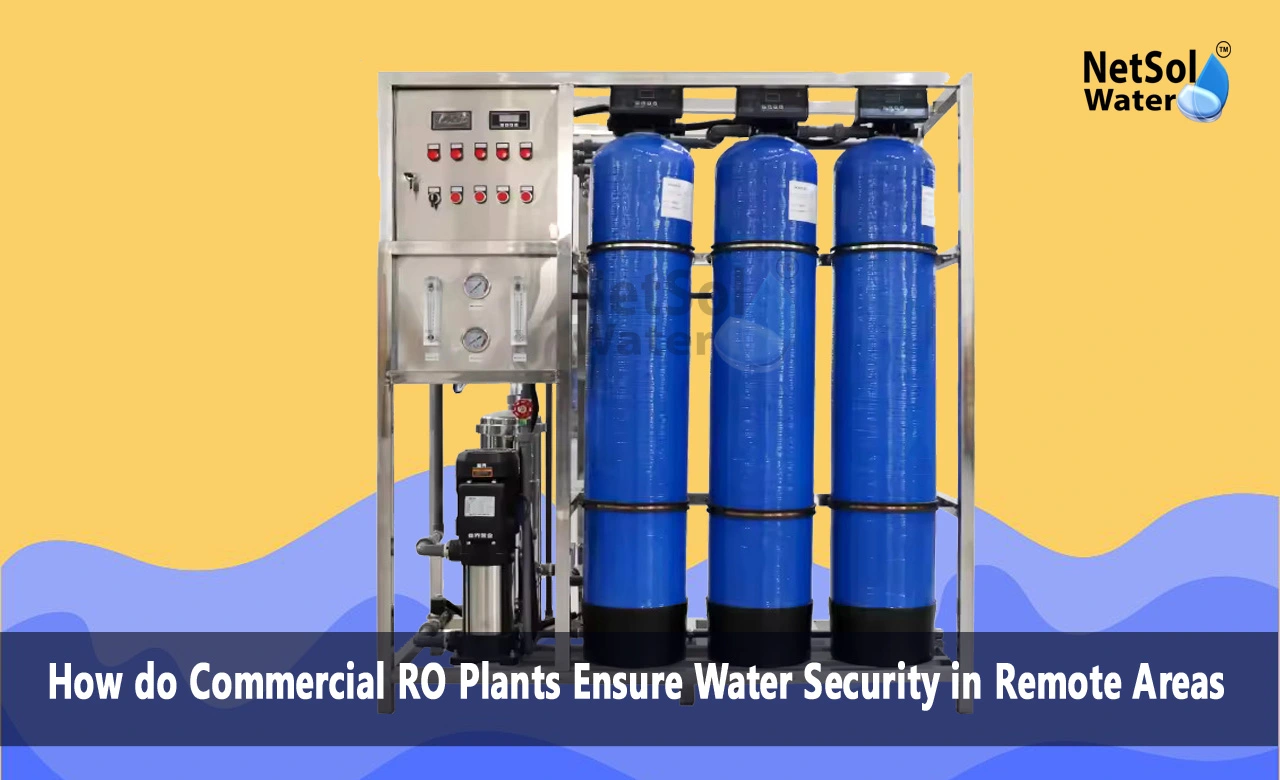How do Commercial RO Plants Ensure Water Security in Remote Areas?
Water is a fundamental resource for life, yet many remote areas around the world face challenges in accessing clean and potable water. In these regions, traditional water sources may be contaminated or scarce, posing significant health risks to communities. However, with advancements in technology, commercial RO plants have emerged as a sustainable solution to address water scarcity issues in remote areas. We will explore how commercial RO plants play a crucial role in ensuring water security in remote locations.
Understanding Water Scarcity in Remote Areas
Remote areas often lack access to reliable sources of clean water due to geographical isolation, inadequate infrastructure, and environmental factors. In such regions, communities rely on groundwater, rivers, or rainwater for their water needs. However, these sources are prone to contamination from pollutants, pathogens, and natural elements, making the water unsafe for consumption. As a result, residents are vulnerable to waterborne diseases and suffer from poor health outcomes.
The Role of Commercial RO Plants
Commercial RO plants utilize advanced filtration technology to purify water by removing impurities, contaminants, and dissolved solids. These plants work on the principle of reverse osmosis, where water is forced through a semi-permeable membrane, leaving behind contaminants and producing clean drinking water. In remote areas, commercial RO plants serve as decentralized water treatment systems, providing communities with access to safe and reliable drinking water.
Benefits of Commercial RO Plants in Remote Areas
Water Quality Improvement:
Commercial RO plants effectively remove various impurities and contaminants from water, including bacteria, viruses, heavy metals, and dissolved salts. This process results in high-quality, potable water that meets international standards for drinking water quality.
Reliability and Sustainability:
Unlike traditional water treatment methods that may rely on centralized infrastructure, commercial RO plants can be deployed in remote areas where access to clean water is limited. These plants are modular and scalable, making them suitable for small communities and rural settings. Additionally, RO technology requires minimal energy compared to other treatment methods, making it a sustainable solution for water purification.
Community Empowerment:
By installing commercial RO plants in remote areas, communities gain greater control over their water supply and reduce their dependence on external sources. This empowerment fosters self-sufficiency and resilience, enabling communities to thrive even in challenging environmental conditions.
Challenges and Considerations
While commercial RO plants offer numerous benefits, their implementation in remote areas comes with certain challenges and considerations:
Cost: The upfront cost of installing and operating commercial RO plants can be significant, especially for communities with limited financial resources. However, the long-term benefits in terms of improved health outcomes and economic development often outweigh the initial investment.
Maintenance and Operation: Proper maintenance and operation of RO plants are essential to ensure optimal performance and longevity. In remote areas where technical expertise may be scarce, training local personnel to operate and maintain the plant is crucial for sustainability.
Environmental Impact: While RO technology is effective in purifying water, it also generates brine waste containing concentrated salts and contaminants. Proper disposal or treatment of this waste is necessary to minimize environmental impact and ensure compliance with regulations.
Case Studies
Several successful implementations of commercial RO plants in remote areas demonstrate their effectiveness in addressing water security challenges:
Rural Communities in Africa: Non-profit organizations and government agencies have installed commercial RO plants in rural African communities to provide clean drinking water to residents. These initiatives have significantly reduced waterborne diseases and improved overall health outcomes.
Island Communities in the Pacific: Remote island communities facing freshwater shortages have adopted commercial RO plants as a sustainable solution for water desalination. These plants utilize seawater as a source and produce potable water for drinking, agriculture, and other purposes.
Conclusion
Commercial RO plants are really important in places far from cities because they give communities clean water to drink, which keeps them safe. With advanced filtration technology, these plants remove impurities from the water, making it better and stopping diseases. Even though it costs money and needs looking after, the good things about having RO plants in the long run are more important, helping communities do well even if they're far away and don't have much. By using innovative solutions like commercial RO plants, we can deal with not having enough water and make sure things are better for the next generations.
Do you need an advice or assistance on selecting the best water and waste water treatment unit? We have solutions for all your problems!
Let us know your problem, our experts will make sure that it goes away.
For an assistance or related query,
Call on +91-965-060-8473 Or write us at enquiry@netsolwater.com



